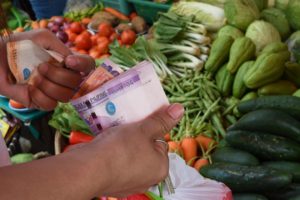MANILA, Philippines — The worsening impact of African swine fever in livestock farms and consumer prices has prompted lawmakers to urge President Rodrigo Duterte to put the country under a state of emergency.
In a Senate hearing on Tuesday, Sen. Francis Pangilinan recommended that President Duterte declare a national emergency so that public funds could be realigned to the Department of Agriculture (DA) and allow it to repair the economic damage caused by the swine fever.
The motion was seconded by Sen. Nancy Binay and was supported by committee on agriculture and food chair Sen. Cynthia Villar.
The additional funding would enable DA to accommodate more hog raisers who need indemnity funds and boost their repopulation efforts, Pangilinan said.
During the previous hearing, lawmakers questioned the DA for allotting only 2 percent of its national fund this year to the livestock sector despite the persistence of ASF in farms since 2019. For this year, only P1.5 billion of the DA’s P67-billion budget will be given to livestock.
Since then, the government has struggled to keep the viral hog disease under control.
Pork prices have remained high despite the 60-day price freeze approved by Mr. Duterte last month. In the same period, the country’s headline inflation further rose to 4.7 percent on back of higher food prices. This was the highest in two years.
Give more incentives
Industry leaders who attended the hearing said they were worried that the existing programs and policies of the DA — together with its proposal to reduce tariff rates on imported pork and increase the minimum access volume — were discouraging backyard raisers from reinvesting in their farms.
Nicanor Briones, vice president of the Pork Producers Federation of the Philippines, said the agency should focus on giving more incentives to local raisers instead of encouraging importers if the government wanted to ensure the country’s food security.
Economists and economic officials have been pushing for an increase in the volume of meat imports allowed to enter the country and lowering the tariff on these shipments. They argued that this would be quickest way to address rising prices as the cause was a shortage in supply.
Repopulation programs for local hog raisers, on the other hand, will take time.
At the same time, the government’s move to bring pork from provinces with adequate supply to areas with big demand like Metro Manila is being opposed by local government units that wanted to ensure first the supply security of their jurisdictions.


